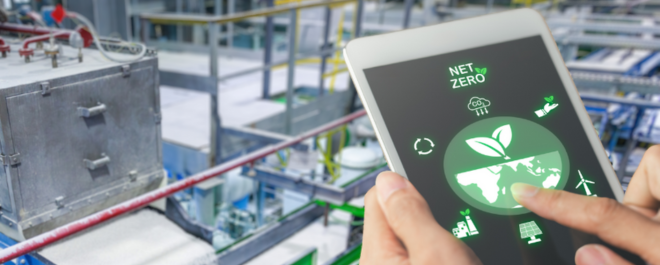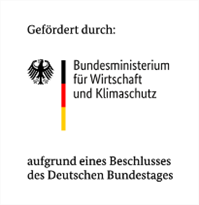
Be it mandatory reporting requirements according to EU standards, regulations such as the EU Green Deal, national legislation, or OEM specifications in the automotive industry, there are more and more reasons for polymer processors to report and reduce their own CO2 emissions. However, most companies today can only carry out costly life-cycle assessment studies or use benchmark data to estimate how high the CO2 emissions are that they generate in their production. The aim of the CO2ptimat project is to develop a software that enables companies to determine their product-related CO2 footprint and other production KPIs based on primary data.
When collecting data at the companies, the company’s level of digitization needs to be considered. The aim is for the developed software to interface with the IT systems used in production to collect all emissions-relevant data. This data is then analyzed and prepared by the CO2ptimat software in a well-arranged manner. Precise measuring and calculating of CO2 emissions is the prerequisite for identifying any potential for improvement in the next step. Users should be able to see how changes in material and process parameters affect their carbon footprint. This would provide a reliable basis on which companies could make more sustainable decisions.
To reduce CO2 emissions, it is generally worthwhile for processors to switch to recycled materials. They are per se more CO2 efficient than new materials. For this reason, new materials are already taxed in some countries. But it is not quite that simple. Switching to alternative materials in production or adjusting the material mix is rarely done in practice, as this can have a negative impact on product quality and productivity, potentially affecting profitability. The CO2ptimat software is designed to take these aspects into account and provide data-based support.
"At Meraxis, we already use digital technologies to provide accurate material recommendations with the help of learning algorithms," explains Thomas Poddey, Sustainability & Development Project Manager at Meraxis Services GmbH and Meraxis' CO2ptimat project manager. "By using the CO2ptimat software, Meraxis customers could receive even better suggestions for recyclate alternatives and concrete advice on how to make their production more climate friendly."
The CO2ptimat consortium is made up of representatives from science and practice. In addition to Meraxis, the Fraunhofer Institute for Production Technology and the INC Invention Center from around the RWTH Aachen University are involved in the development; as well as the film manufacturer TERDEX and our sister company REHAU Industries, with whom the application can be tested and validated under real conditions during production. Poddey sums up the potential: "For Meraxis customers, we already make the CO2 footprint of materials visible in our customer portal. If they use the CO2ptimat software to determine the emissions from their production, they get a holistic view of the CO2 emissions of their products."
